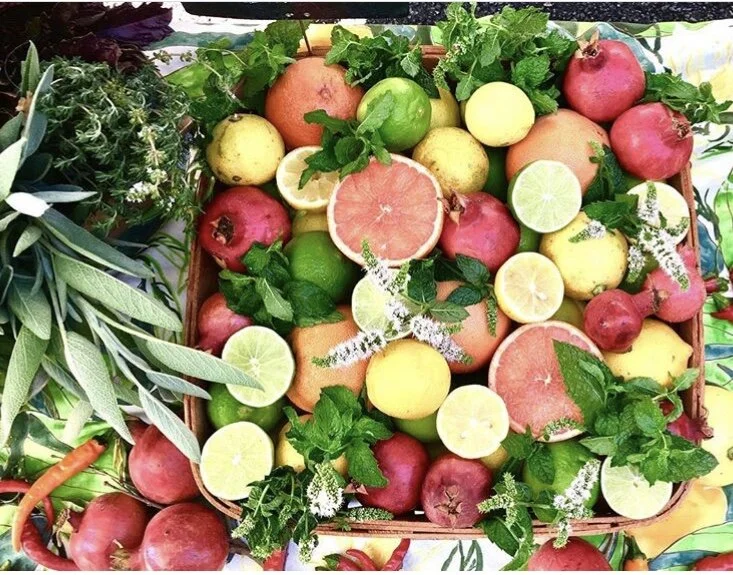Why Eating Seasonally Is Good For Your Health
In the nutrition world, there is generally a lot of advocacy for folks to eat seasonally and locally. But in this stressful, crazed world we currently live in where we barely know where our pants are, knowing (or even caring) where our food comes from is not a high priority for many. How to eat healthy has become just another thing on our ever-growing to do lists, and asking people to start caring about eating foods in season just seems frivolous.
Except…there are actual reasons why eating seasonally is recommended, when possible.
Notice I said “when possible.” This is because it can be easy to get stressed out about how and where we get our food, and we don’t want perfection to be the enemy of done, so to speak. In other words, would it be amazing if you could buy fresh green beans in season from a local farmer that you can prepare at home and enjoy? Yes. Would it also be amazing if you grab a can of green beans from your pantry? Also yes. Whatever you have access to is good.
That being said, there are health benefits to eating in season. But first, what IS eating seasonally?
‘Eating seasonally’ or ‘eating in season’ is simply the idea of eating fruits and vegetables that are naturally grown and harvested at certain times of the year. For example, berries are ready in the summer. Squashes in the fall and winter.
So how is eating seasonally healthy?
More bang for your nutritional buck: Foods eaten in season are more nutrient dense. In this study, Vitamin C levels were much higher in broccoli during its season (fall) than in the ‘off season.’
Cost: When you purchase a fruit or veggie in season, it’s typically cheaper than buying it off season.
Taste: An apple in the fall, summer blueberries, peaches and corn in late summer, fresh asparagus stalks in the spring- all of these foods just TASTE better when in season! Have you ever eaten a mealy, barely red and flavorless grocery store tomato in December? What about a juicy, sweet and colorful heirloom tomato from a farmers' market in the summer? Exactly. Which brings me too...
Variety: eating the same thing week after week not only doesn’t do much for your health, but it can also get boring. Eating seasonally enables you to try different foods throughout the year which provide you with specific, varied nutrients.
Mother Nature in her infinite wisdom provides you with the nutrients you need for the season you are in: Similar to how our bodies naturally crave the warming spices of fall as the weather cools, eating seasonally tends to give you just what your body needs for that time of year. Think Vitamin C-rich citrus fruits ready in the winter just in time for cold and flu season, water-dense produce like cucumber and watermelon in the hot days of summer, orange- colored immune-boosting Vitamin A rich veggies like sweet potatoes and squashes in the fall.
How can you eat seasonally? One way is to find a local farmer’s market, or sign up for a CSA/farmbox delivery. Both sell produce from (usually) local farmers who are selling what they are growing, naturally and in season. You can also check this list to see what’s ready in your area.
Want to learn more nutrition tips? Sign up for one of our one-on-one nutritional consulting packages, where you get dedicated 1:1 sessions with a Certified Nutrition Consultant to help guide you on your health journey. Schedule a free consult or book your package here.

